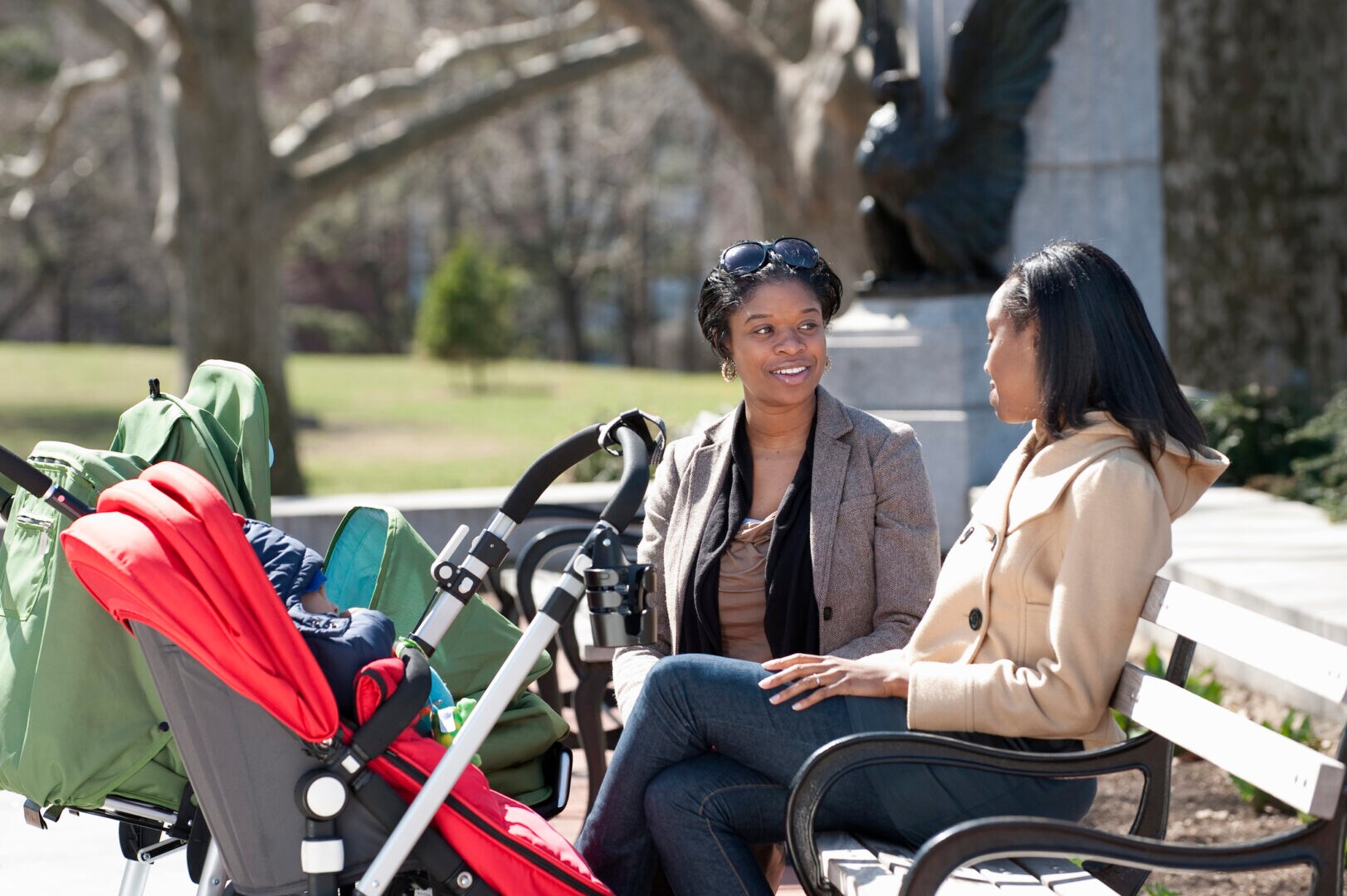Caregiving can be lonely business. You may wave at other nannies at the park, but your attention is on the kids you’re watching and you don’t have time for in-depth conversations. You care for a senior who is house-bound due to illness, so you don’t have a lot of interaction with others.
Sometimes you need to talk to other people who do what you do, and understand your particular challenges and triumphs.
Here are 7 ways you can connect with other nannies, babysitters and caregivers like you.
1. Use your network
One way to connect with other nannies is to ask friends, family and acquaintances — even your employer — for introductions. It can be awkward trying to start a new relationship cold, but if you know someone who knows another person or family who employs a caregiver, they might be willing to introduce you. This can work with the people you interact with face-to-face or through social networks, like in this caregiver community on Reddit or another nanny networking group.
2. Take a class
Enrolling in a workshop, class or seminar on caregiver-related topics is doubly beneficial. You’ll obtain new skills that will help you in your work, and you’ll also meet like-minded people in the field. You can often find caregiver-centric classes at community colleges, your local American Red Cross or other health care organizations, or adult learning centers. Check out these nanny training courses and certifications.
3. Ask your agency
If you’re working through a caregiver placement agency, you can check with them and ask for a contact list for other nannies or caregivers in your area. Many agencies are happy provide introductions — they typically understand the importance of socialization and like it when people get to know one another.
4. Join a professional or local group
What are the popular associations in your industry? They may organize classes, meetings or social events for members. For example, the International Nanny Association and the National Association of Professional Pet Sitters both annual conferences and local networking opportunities.
And there are local groups for nannies in most major cities, from the San Francisco Bay Area Nannies to the Northwest Nanny Association. Google the name of your city and “nanny group.” Also look for local meetups for people who specialize in your field. You don’t have to feel isolated as a caregiver. Take the first step and reach out to others in your community. Soon, you’ll be wondering how you went so long without connections.
5. Hit the local park
Parks are a favorite place for caregivers with small, energetic charges — whether they’re children or pets. Look for popular parks in your area, and head there regularly. Try to strike up a conversation with someone each time you visit — the chances are pretty high that you’ll run into another caregiver. Just make sure you’re still interacting with your child or pet. Your job comes first!
6. Organize an outing
Play dates are fun for kids and helpful for nannies, who benefit from the company while the kids are playing. You can recruit caregivers in your area and arrange a collective outing — a picnic in the park, a day at the playground or any child-friendly place in your community. You could even arrange a nanny camp during the summer or even the school year.
7. Join an online group
If you really don’t have time to get out and meet people, or there aren’t many caregivers in your area, join a nanny support group or other forum or online support group for caregivers. There are groups for every type of caregiver where you can interact with like-minded people and make personal connections. You may also be able to arrange in-person get-togethers with caregivers you meet in forums. You can also visit caregiver blogs for support, discussion and friendship.
You don’t have to feel isolated as a caregiver. Take the first step and reach out to others in your community. Soon, you’ll be wondering how you went so long without connections.
Melissa Rudy runs a freelance writing business, Words by Melissa, from her home office in Cincinnati. She graduated from the University of Cincinnati with a bachelor’s in English literature and journalism.






